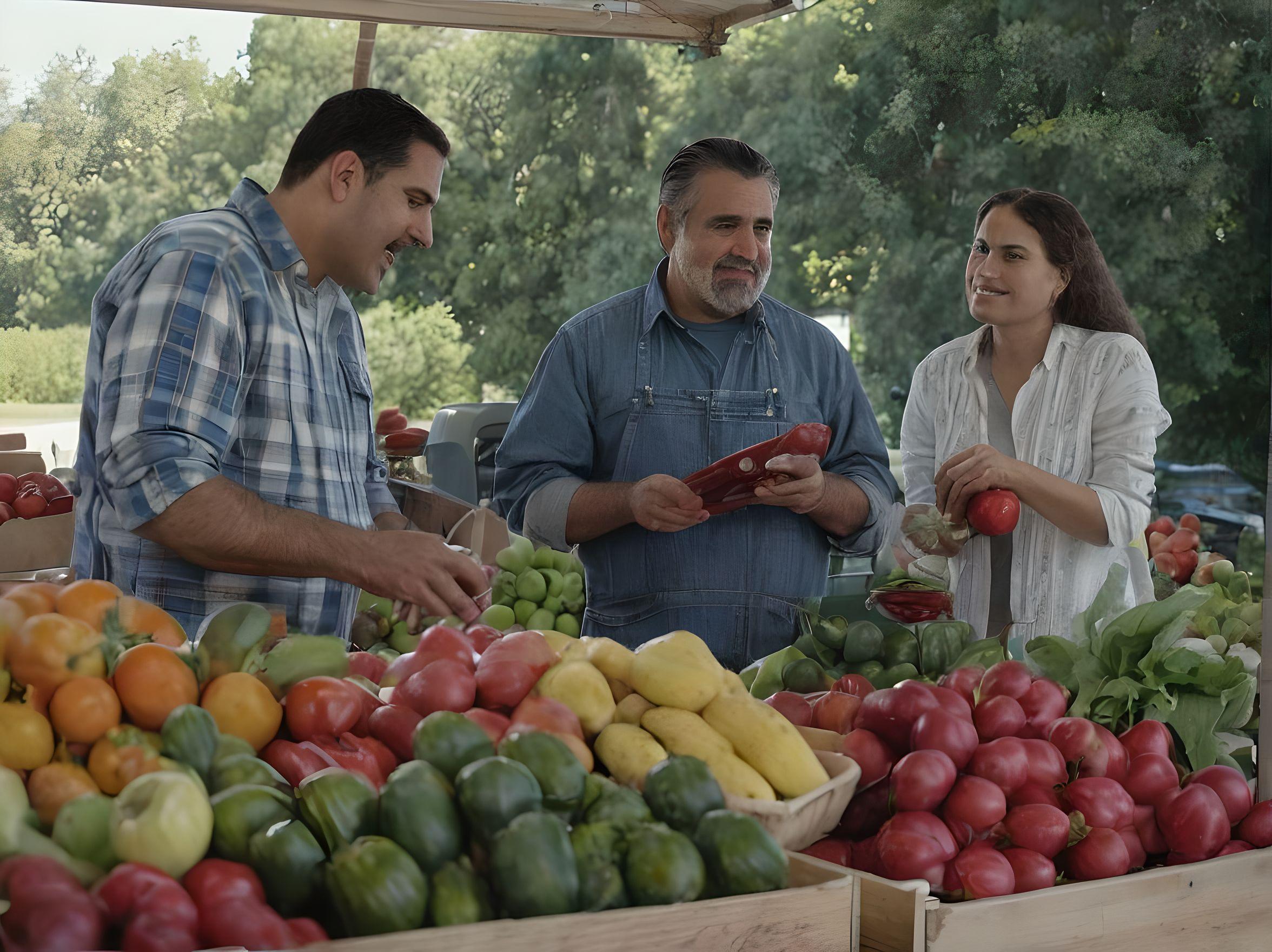In recent times, there has been a global shift towards sustainable living due to an increased awareness of environmental issues and a shared goal of combating the negative impacts of climate change. At the core of this movement is an emphasis on organic foods, which are valued not just for their health benefits but also for their positive contributions to environmental sustainability. This piece explores the relationship between organic foods and sustainable living, delving into how organic farming techniques play a role in promoting a healthier planet and creating a more resilient food system.
Defining Organic Foods
Organic foods are produced using farming methods that prioritize natural substances and processes. This involves steering clear of synthetic pesticides, fertilizers, genetically modified organisms (GMOs), antibiotics, and growth hormones. Instead, organic farming relies on techniques such as crop rotation, green manure, composting, and biological pest control. These practices are aimed at preserving ecological balance, improving soil fertility, and fostering biodiversity.
Environmental Advantages of Organic Farming
Soil Health and Fertility
Maintaining soil health is crucial in sustainable farming practices. By avoiding synthetic fertilizers and pesticides, organic farmers prevent soil depletion and contamination. Instead, they utilize compost, animal manure, and green manure to enhance the soil’s nutrients for long-term fertility. Implementing crop rotation and cover cropping also aids in preventing soil erosion and enhancing soil structure, essential elements for sustainable agriculture.
Water Preservation and Quality
Organic farming significantly contributes to water preservation and quality. Unlike conventional methods that often result in the contamination of water bodies with pesticides and fertilizers, organic farming minimizes this risk by using natural alternatives for fertilization and pest control. Techniques like mulching and cover cropping not only enhance soil structure but also improve water retention, reducing the dependency on irrigation systems and conserving water resources.
Promoting Biodiversity
Biodiversity is fundamental to maintaining resilient ecosystems. Organic farms stand out for their diverse array of crops and natural pest management approaches, fostering greater biodiversity compared to conventional farms. This diversity extends to the soil microorganisms that play a crucial role in nutrient cycling and overall soil health. By nurturing a varied ecosystem, organic farming builds resilience against pests and diseases without relying on chemical solutions.
Lowering Environmental Impact
Organic farming presents an opportunity to combat climate change by decreasing greenhouse gas emissions. Traditional farming contributes significantly to the release of carbon dioxide, methane, and nitrous oxide into the atmosphere due to the use of synthetic fertilizers and intensive animal farming. On the other hand, organic farming methods like composting and minimal soil disturbance help store carbon in the soil, thus lowering the overall carbon footprint. Moreover, organic agriculture often relies on local distribution systems, reducing emissions from transportation.
Benefits of Organic Food for Health
In addition to its environmental impact, consuming organic food offers various health benefits. Organic products are generally free from harmful chemicals and contain higher levels of certain nutrients compared to conventionally grown items. Research indicates that organic fruits and vegetables may have increased amounts of antioxidants, which are advantageous for overall well-being. Furthermore, organic meat and dairy products are typically produced without antibiotics and hormones, reducing the chances of antibiotic resistance and hormone-related health problems among consumers.
Economic and Social Consequences
Boosting Local Economies
Choosing organic foods frequently supports local farmers and economies. Organic farming is usually conducted on a smaller scale than conventional methods, leading to more direct sales to consumers through farmers’ markets and community-supported agriculture (CSA) programs. Supporting local economies not only boosts their strength but also nurtures a sense of community and connection between buyers and sellers.
Ethical Labor Practices
In some cases, organic certification standards incorporate guidelines for labor practices, ensuring farm workers are treated ethically and receive fair wages. By opting for organic products, consumers can advocate for humane and equitable working conditions in the agricultural industry.
Enhancing Food Security and Resilience
Organic farming plays a role in enhancing food security by promoting diversity and resilience in agriculture. Diverse crop systems are less susceptible to pests, diseases, and extreme weather conditions compared to monocultures. This resilience is crucial in addressing climate change challenges by maintaining a stable food supply despite adversities.
Obstacles and Factors to Consider
Despite the array of advantages, there are obstacles linked with organic farming and the consumption of organic produce. Organic farming typically demands more labor-intensive practices than conventional methods, leading to higher production costs and subsequently elevated prices for consumers. Nonetheless, the long-term benefits for the environment and health may justify these expenses.
Furthermore, obtaining organic certification can be intricate and costly, acting as a hurdle for small-scale farmers. Another concern is “greenwashing,” where products are falsely marketed as environmentally friendly when they may not meet organic standards. Consumers should stay alert and look for certified labels to ensure they are truly backing sustainable practices.
Moving Forward
To fully enjoy the advantages of organic foods and sustainable living, it’s crucial to take a comprehensive approach. This involves supporting policies and programs that advocate for organic farming, investing in research and development to enhance organic farming methods, and raising awareness among consumers about the benefits of organic foods.
Consumers can make an impact by making informed choices and giving preference to organic products. Furthermore, community projects such as urban gardening and local food cooperatives can help increase the accessibility and affordability of organic foods.
The relationship between organic foods and sustainable living is intricate and deeply connected. Organic farming methods provide numerous environmental benefits, promote human health, bolster local economies, and advance social justice. By opting for organic foods, consumers can actively contribute to building a sustainable and fair food system. As awareness of and demand for organic products rise, so too will the positive effects on our planet and future generations.









